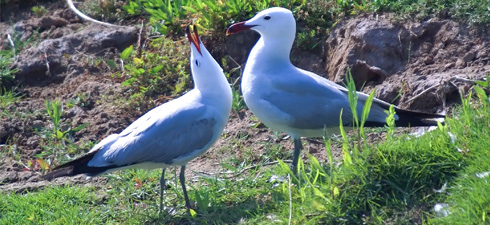Taking stock is always risky. This, however, is what Stavros Dimas, European Environmental Commissioner agreed to do in Athens April 27th to 28th before the crème de la crème of biodiversity experts. The assessment had become a necessity: the Commission’s mandate not only comes to an end within a few weeks but also it’s seven years since the international community pencilled in 2010 – i.e. tomorrow – as the date to measure progress made at offsetting the disappearance of species and deterioration of ecosystems observed on every continent.
The goal was adopted by the United Nations, but the European Union decided on even more ambitious plans, promising to arrest biodiversity erosion by 2010. The inventory drawn up by European Environment Agency (EEA) executive director Jacqueline McGlade proves that with a little more caution Europeans would have been spared the utter failure they now face. She has confirmed that the 2010 target will not be met and that European biodiversity remains in deep trouble.
According to figures in a report the EEA is about to publish, 40 to 70% of bird species and 50 to 85% of habitats vital to European wildlife and flora are in a critical conservation situation.
Have they at least succeeded in slowing down the rate at which the natural world is wasting away due to the effect of territorial splintering, urban and road expansion, as well as increasingly intensive farming? The question remains unanswered.
“On a planetary scale, half the natural world has disappeared since the pre-industrial era, and is still giving way at a yearly rate of 1%,” explains Cambridge Professor Andrew Balmford. “The pace may have slowed down in Europe since Natura 2000 was set up,” he adds. With 25,000 sites covering 17% of the European territory, Natura 2000 is the world’s first network of protected sites. But this showcase is above all intended for the preservation of so-called “remarkable” species and not for what could be termed as “ordinary” biodiversity, upon which services rendered by ecosystems mainly rely.
In 2006, the EU adopted a plan of action for biodiversity protection. No implementation followed. As World Wildlife Fund representative Tony Long remarks, “The plan comes with no constraints, which totally weakens it. It’s wishful thinking to believe that governments or economic decision makers would take biodiversity seriously without the threat of possible sanctions.”
“Climate change and the loss of biodiversity are intimately linked. Both crises should be treated with equal importance,” argued Stavros Dimas. Indeed, ecosystems play a major role in climate regulation. Experts believe they absorb half the greenhouse gas emissions produced by mankind.
In Athens, the Commission and scientists have called on Europeans to step up efforts to establish real target figures sector by sector – in agriculture, infrastructure, town and country planning etc. – in order to save the natural world from destruction. Brussels is shortly to launch a campaign to heighten European citizen awareness. In 2007, according to a survey conducted for the Commission, 75% of respondents were unaware of the meaning of the word biodiversity.
Was this article useful? If so we are delighted!
It is freely available because we believe that the right to free and independent information is essential for democracy. But this right is not guaranteed forever, and independence comes at a cost. We need your support in order to continue publishing independent, multilingual news for all Europeans.
Discover our subscription offers and their exclusive benefits and become a member of our community now!












